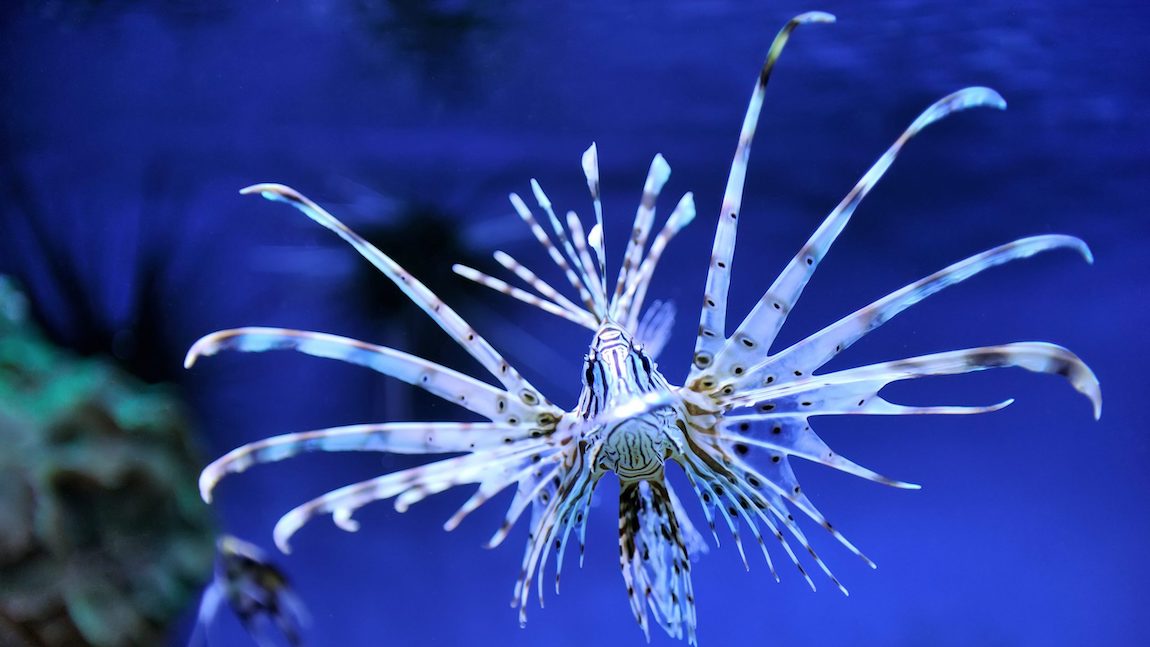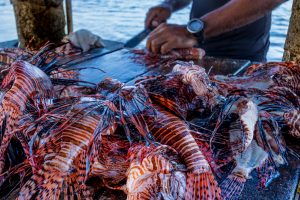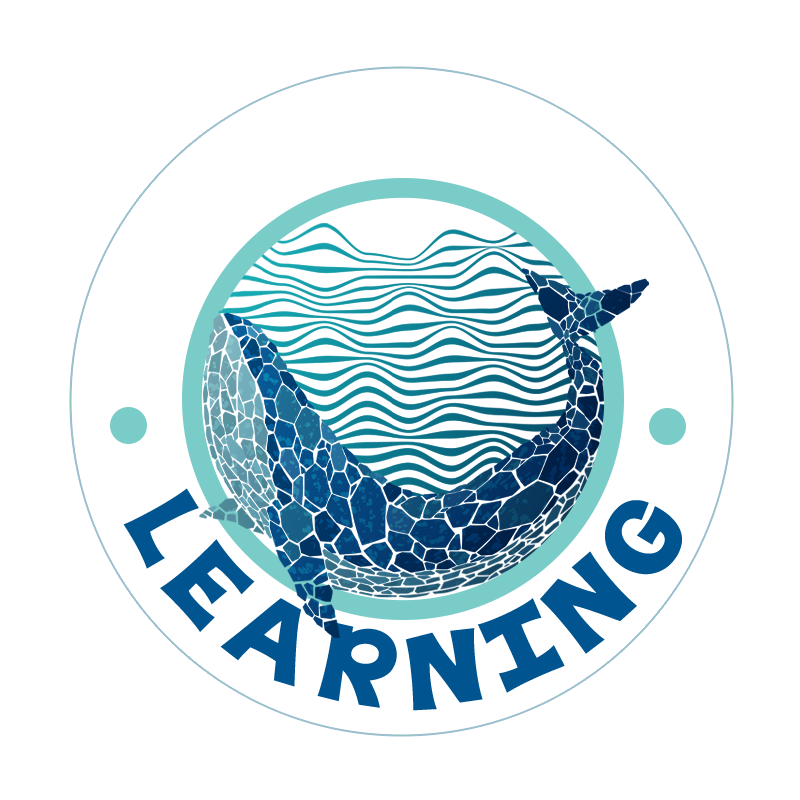
Lionfish for Lunch
Lionfish are a problem. They’ve been a problem in the Western Atlantic Ocean and Gulf of Mexico for at least 40 years. They’re a problem because, as an invasive species with no natural predators and voracious appetites, their population has boomed, and native species have suffered.
So, what do we do? Well, if you live in parts of Florida, you might eat them.
Whoa, wait a minute! Don’t lionfish have those razor-sharp spines that cause excruciating pain if you get cut by one?
Yep, they absolutely do. They have 18 venomous spines in all, along the back, the sides, and even underneath their bodies. But that’s just it—they’re venomous, not poisonous. The venom in the spines is kind of like the venom in a rattlesnake’s fangs. Avoid those, and dig in! (This is more difficult that it sounds. Cleaning lionfish so that they are safe to eat is dangerous, and should be left to professionals.)
 Chefs describe lionfish as very mild and buttery in taste, and can be prepared in the same way as snapper or other similar fish. Also, it’s not only delicious, it’s good for you, with high levels of Omega 3 fatty acids, and low levels of saturated fat.
Chefs describe lionfish as very mild and buttery in taste, and can be prepared in the same way as snapper or other similar fish. Also, it’s not only delicious, it’s good for you, with high levels of Omega 3 fatty acids, and low levels of saturated fat.
If you’re interested in trying out your culinary skills on some delicious Lionfish, Whole Foods Markets in parts of Florida carry fresh lionfish, and there are several recipes available online. We’ve even added links to a few recipes in the Dive Deeper page for this module!
If you’re more of the “Waiter, I’d like to order the Lionfish Sushi” type, there are dozens of restaurants in the Caribbean islands, as well as along the Atlantic and Gulf coasts of the United States. Bon Appetit!
Curriculum Reference Links
- Biological World / Sustainability / 10: Students should be able to evaluate how humans can successfully conserve ecological biodiversity and contribute to global food production; appreciate the benefits that people obtain from ecosystems
[wpc_button]

